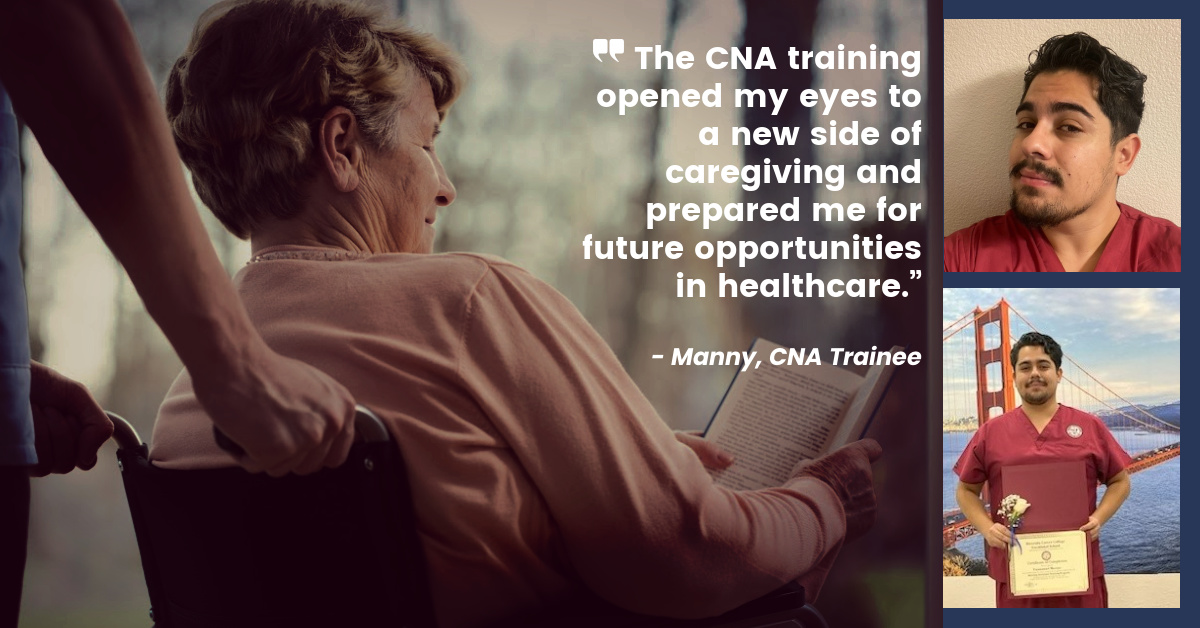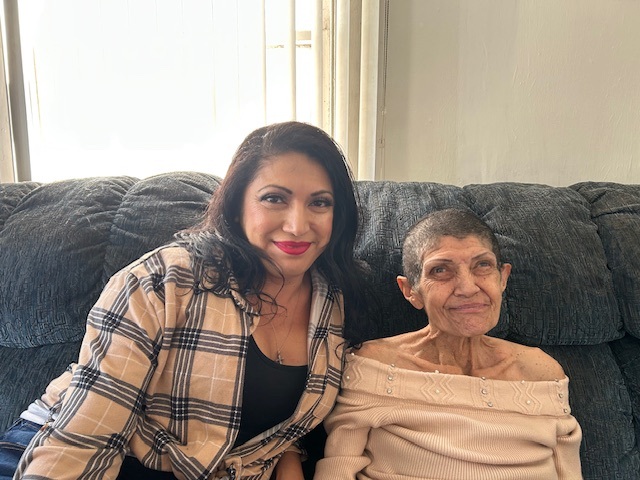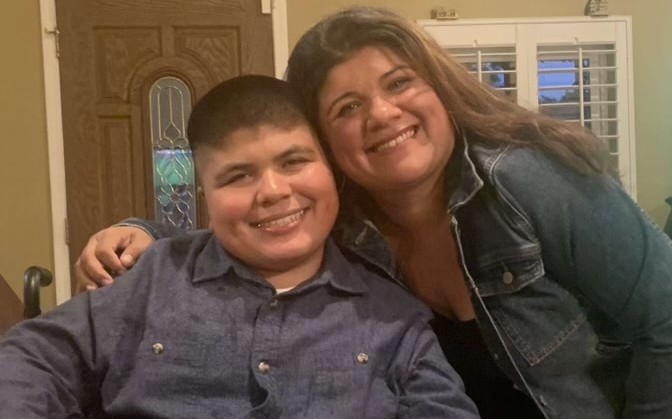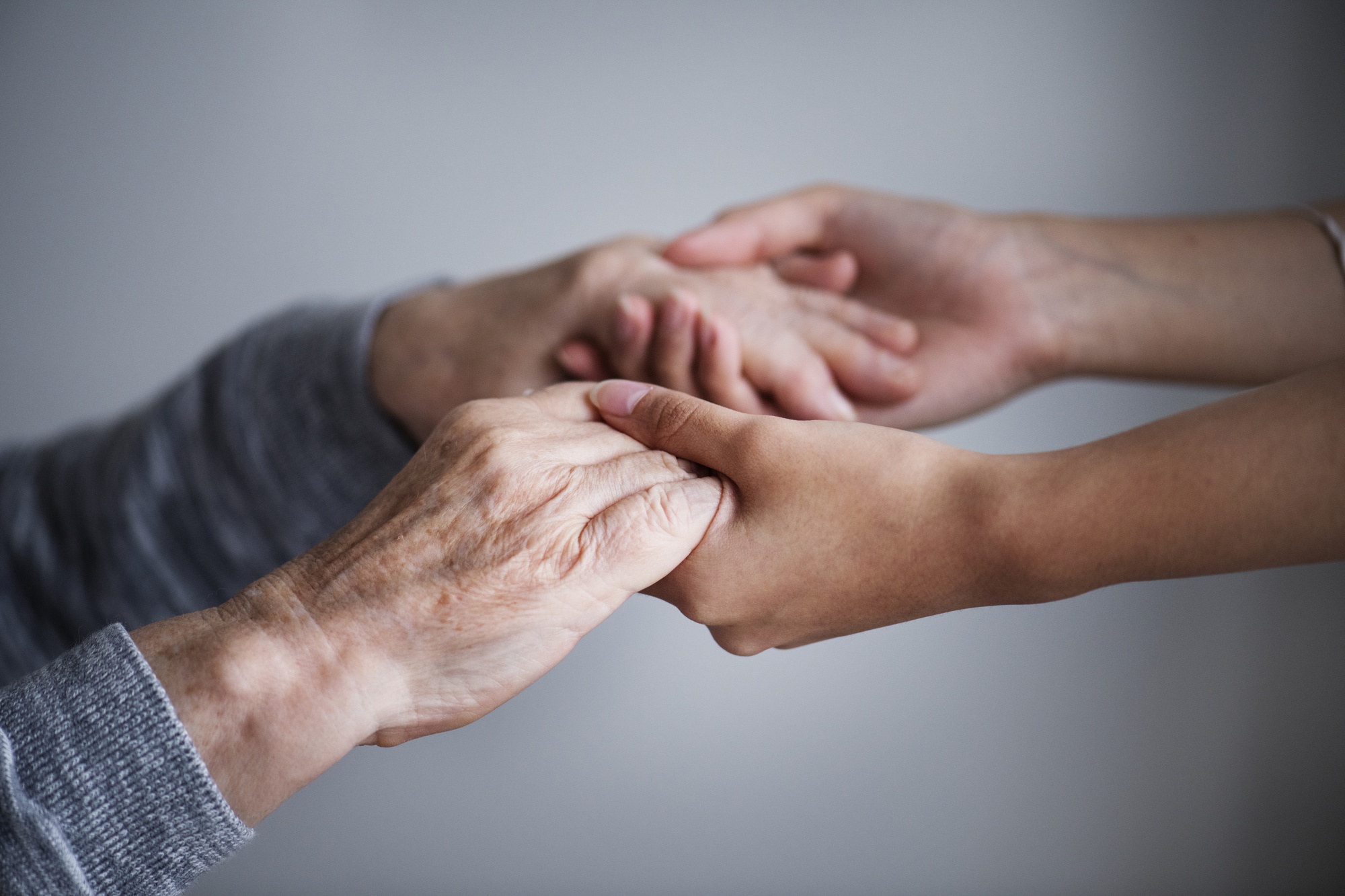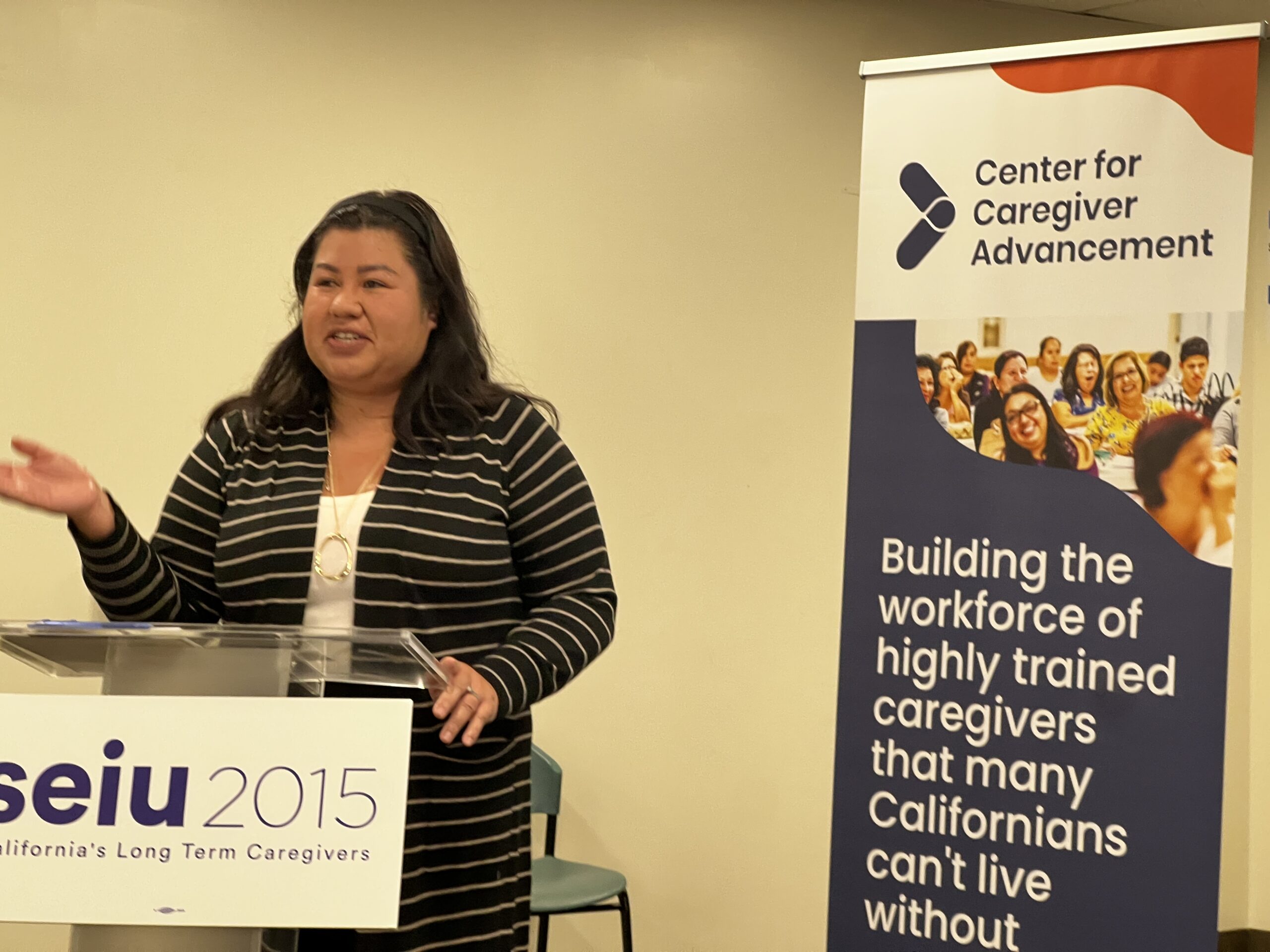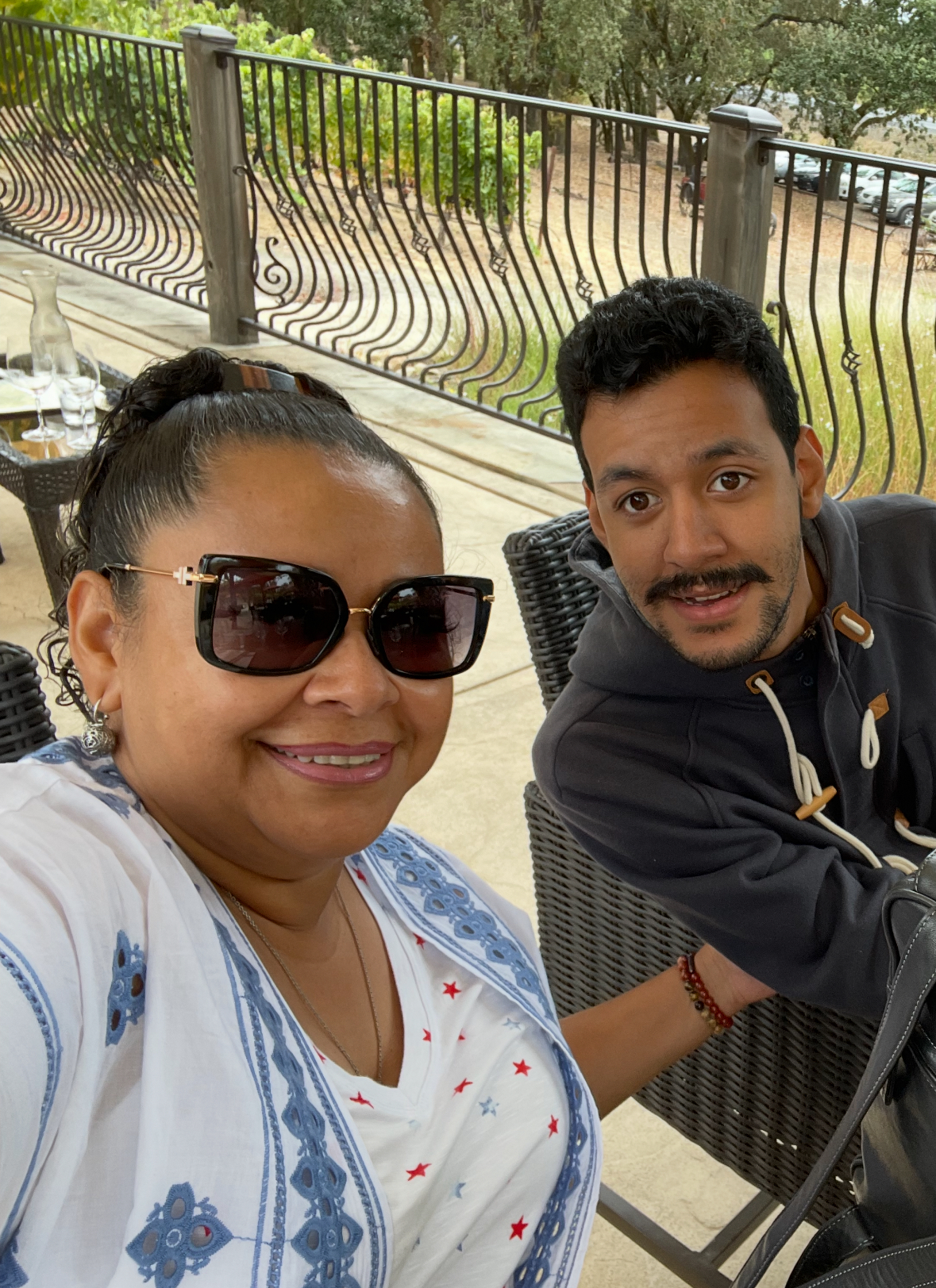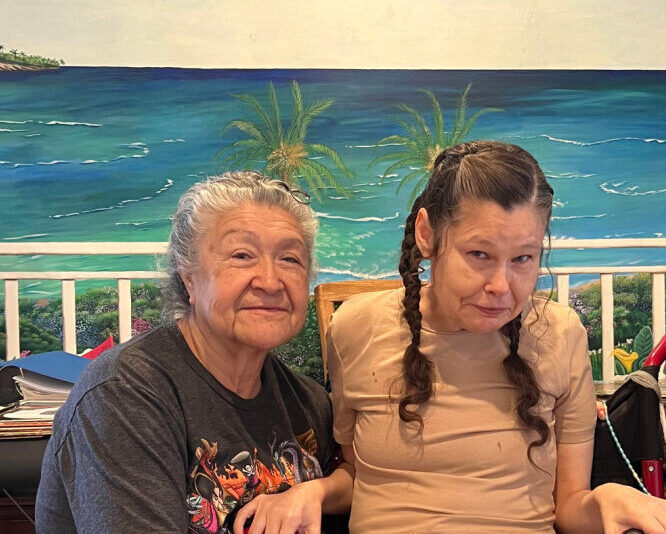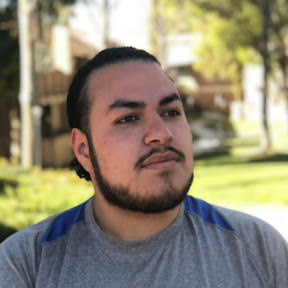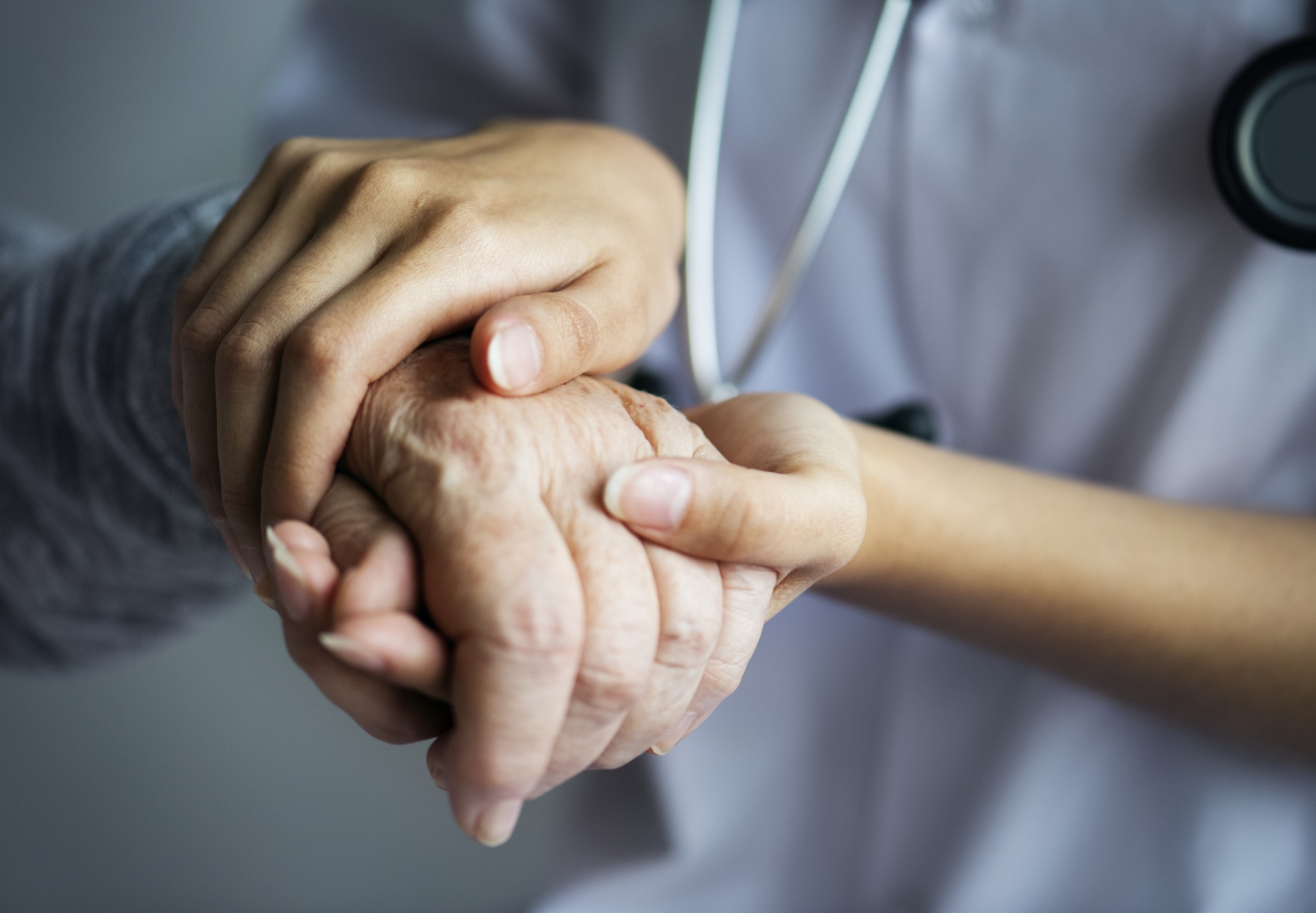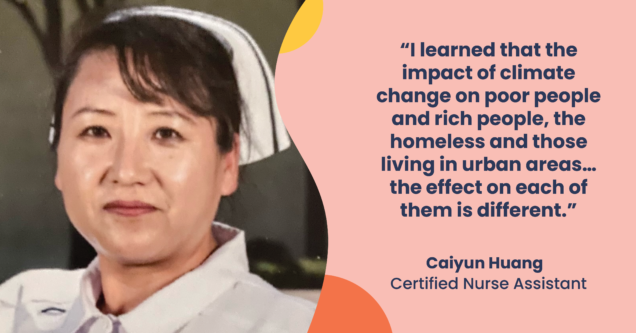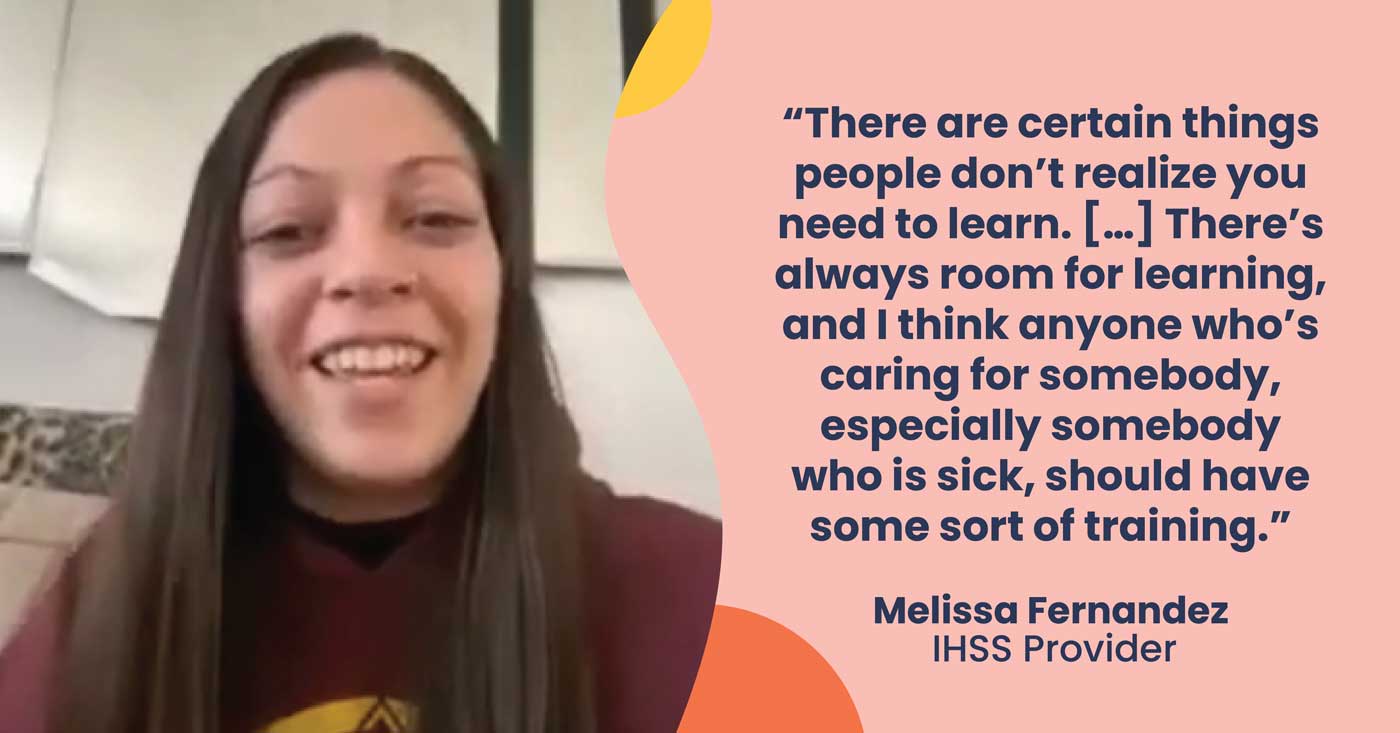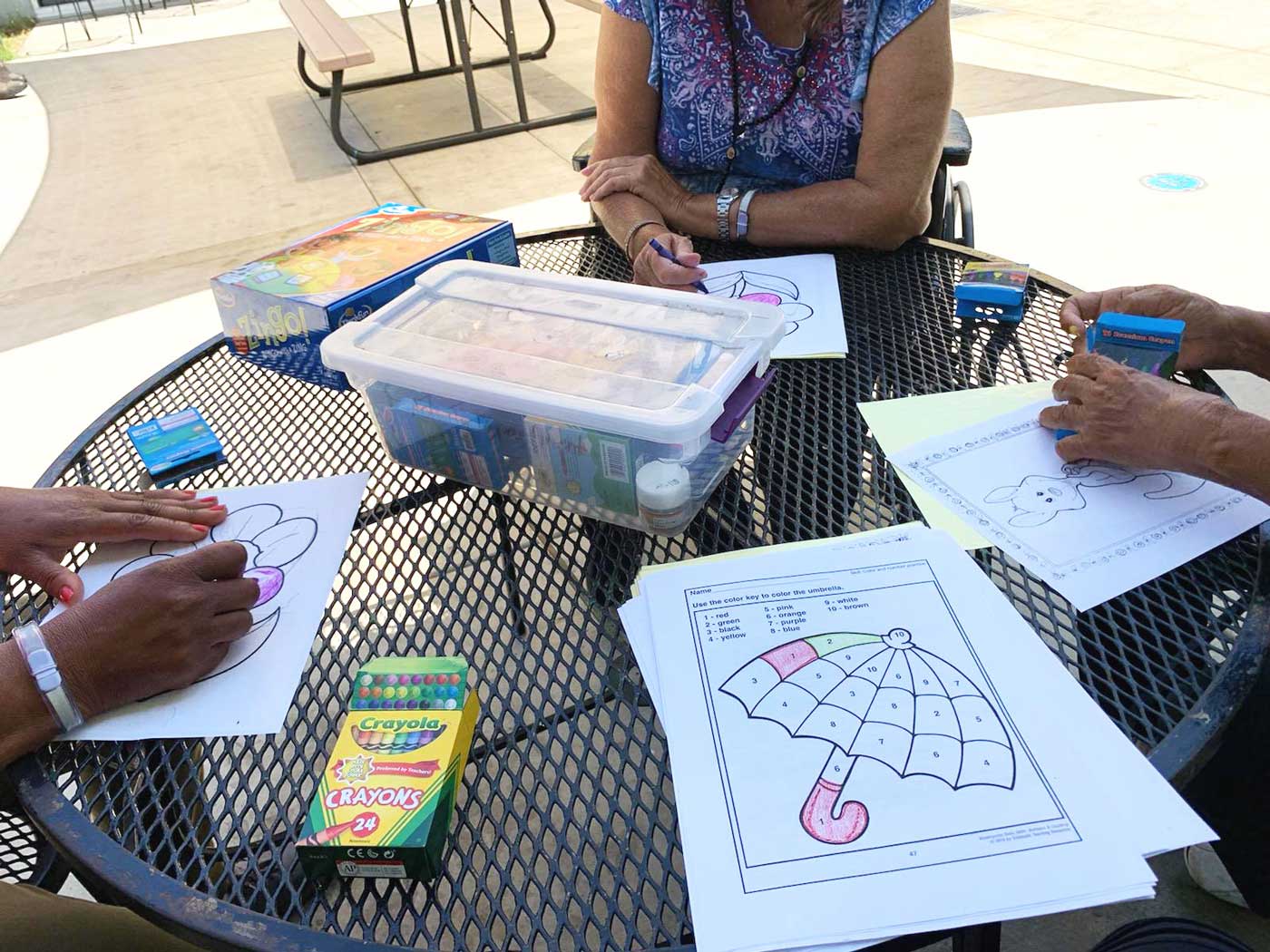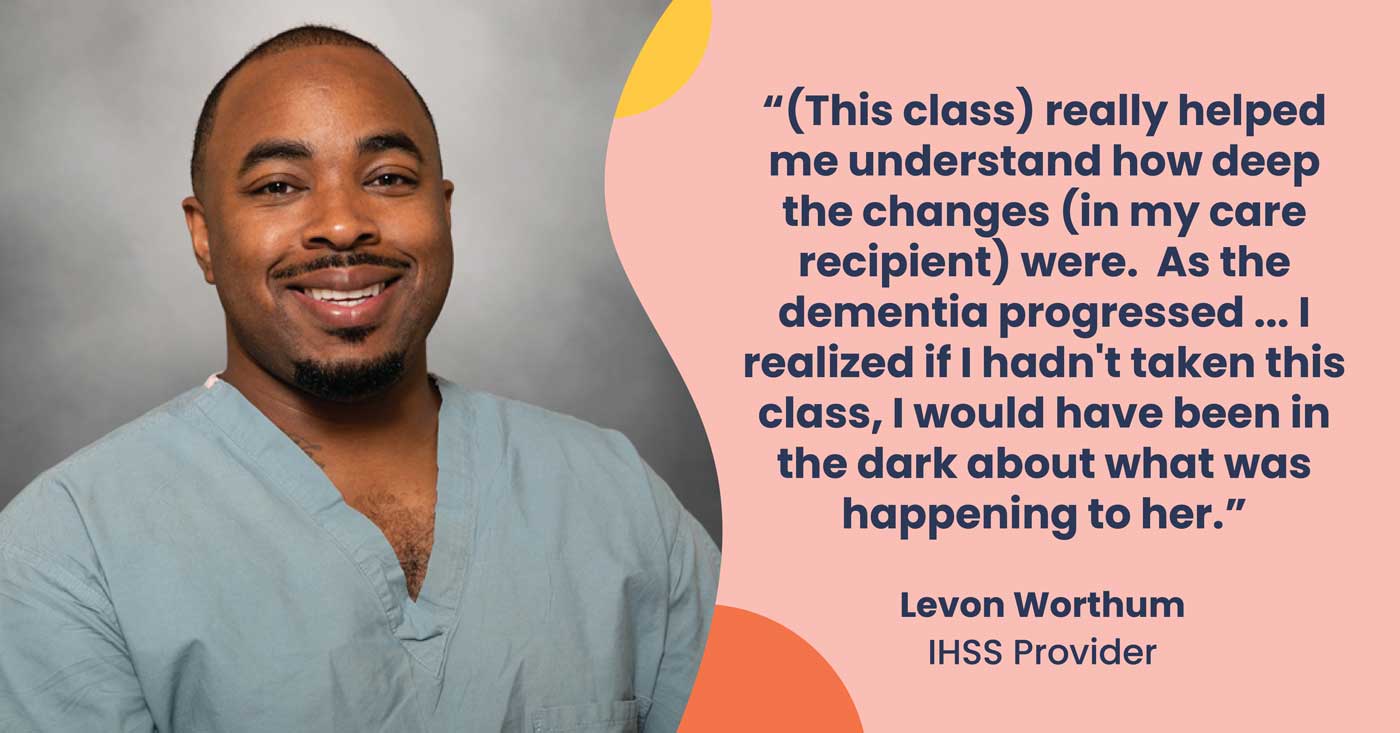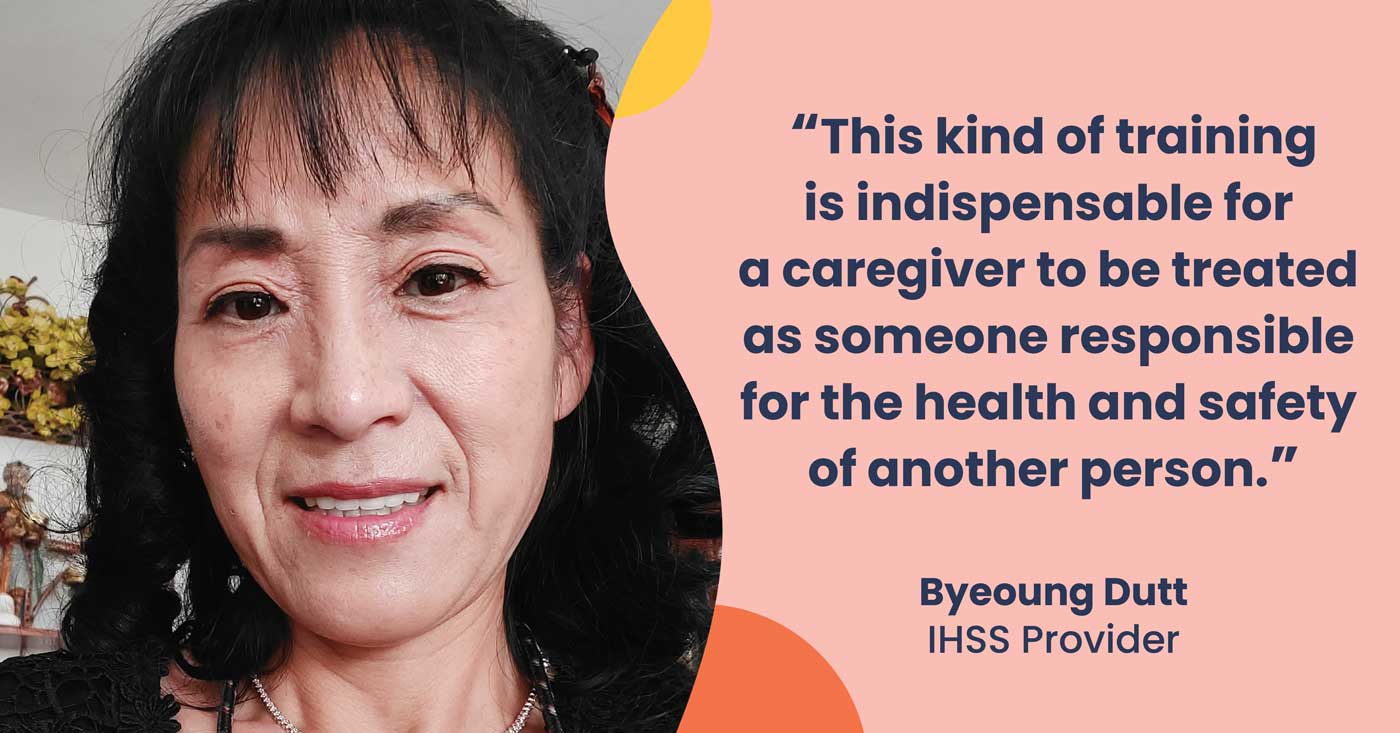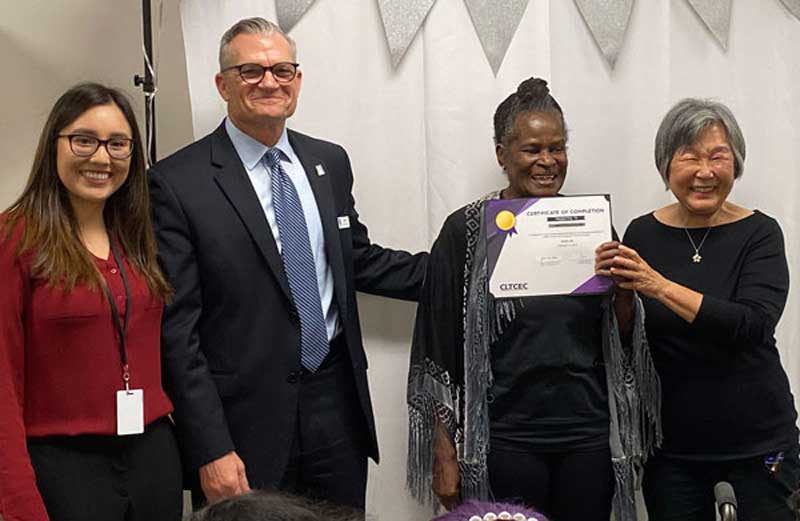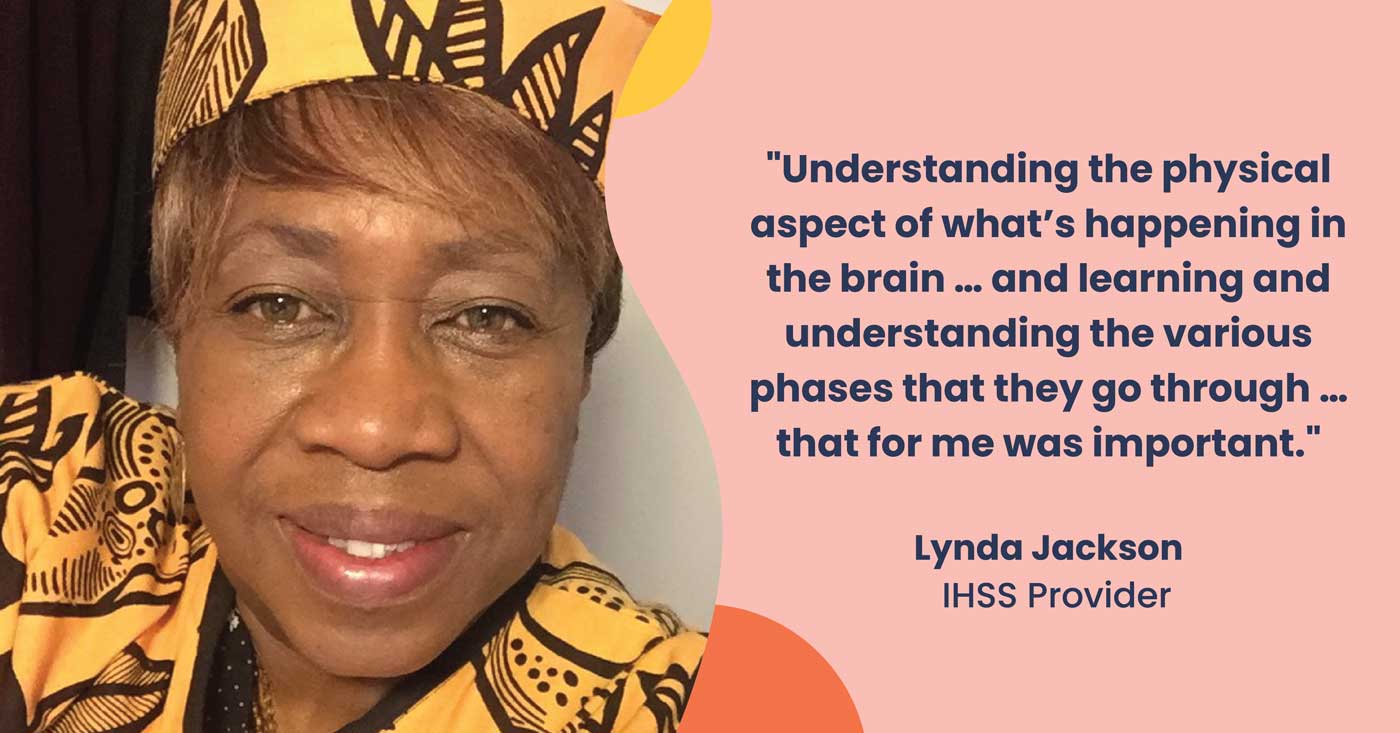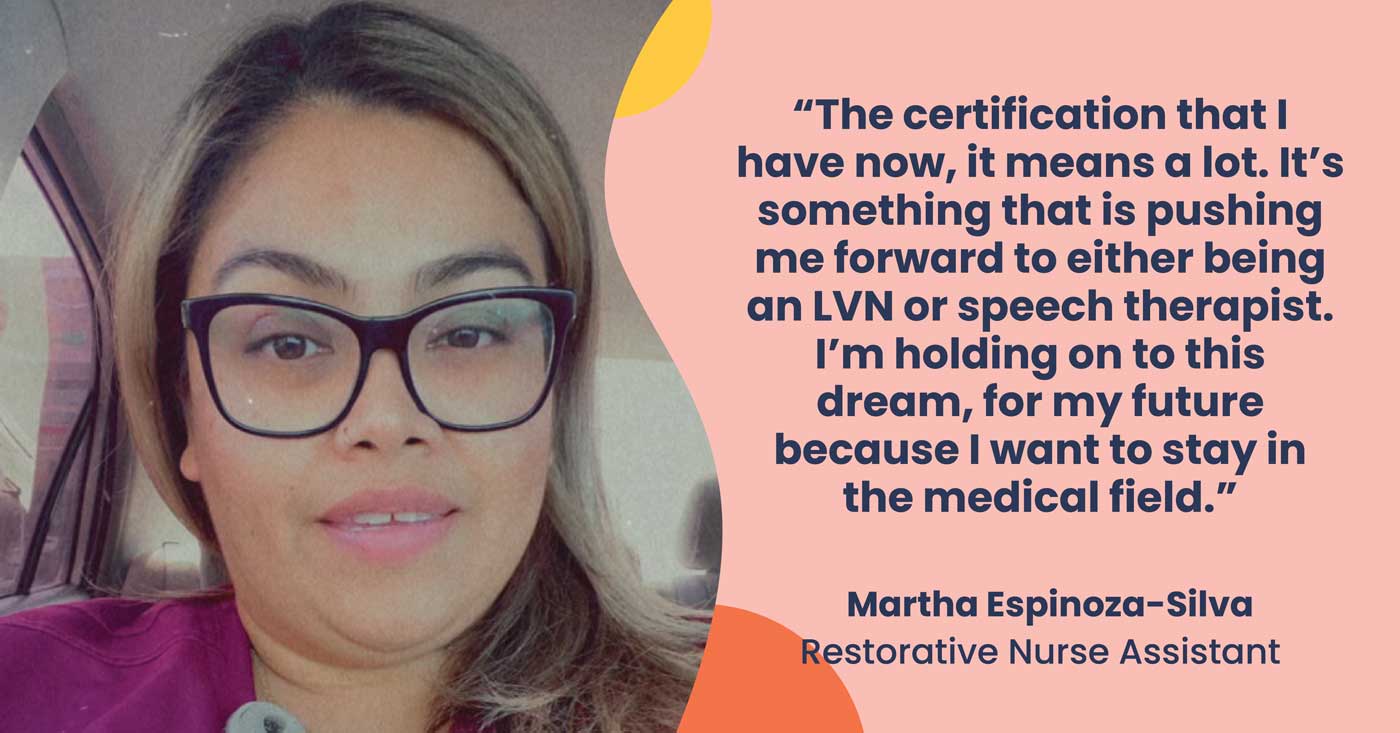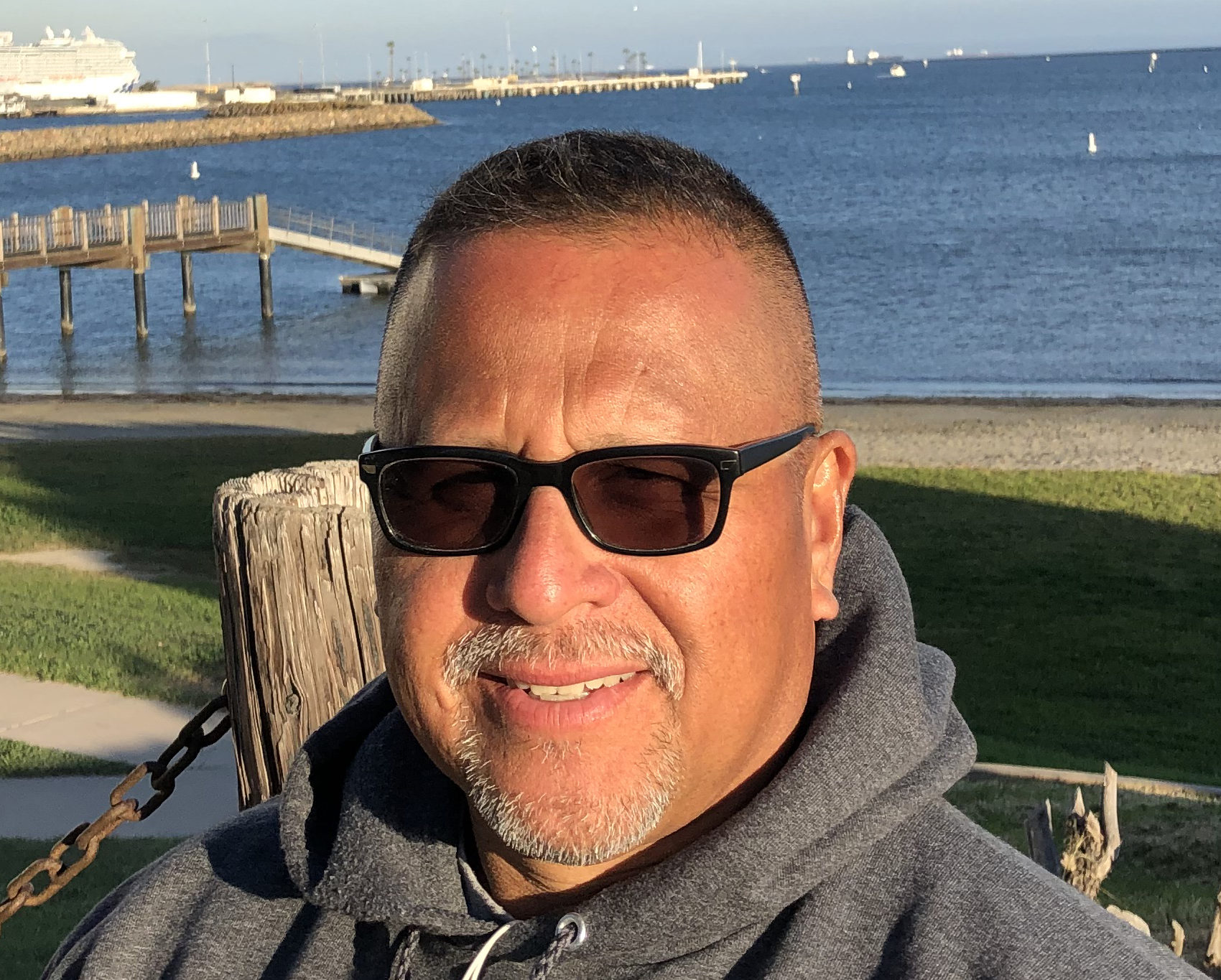Caregiver Amber Peña recently handled a near-emergency situation with resiliency. She knew the situation she faced was familiar, but no less threatening to the life and health of the people she was responsible for keeping safe. An hours-long power outage during California’s prolonged heat wave this summer meant the home care worker needed to stay calm and focused on herself and her mother and aunt.
There was no light, no refrigerator, no microwave, and no air conditioning. But Peña did have a source of power: the resiliency, knowledge, and experience she had gained in her recent caregiver training course.
Peña, and other graduates of the Caregiver Resiliency Project from the Center of Caregiver Advancement (CCA), are now armed with expertise gained from the first-of-its-kind training program. The project offers a specialized six-week curriculum focused on emergency preparedness through the lens of climate change. It is made possible by a $1.07 million grant from the California Workforce Development Board’s High Road Training Partnership.
Graduates learn how to respond to, prepare for, and recover from climate-related disasters such as extreme heat, wildfires, and power outages. The record-breaking heat wave that blanketed California in August and September of 2022 challenged caregivers to step up as first responders as well as essential workers.
Certified Nursing Assistant Jasmine Drake of City View Post Acute in Northern California said she took the class to fill the gap between what she knew from experience and formal training.
“I think it’s valuable because more lives can be saved if you understand how to do things in an emergency,” she said. “And if the residents know you’re dependable, they’ll feel safer. The likelihood of (a climate change emergency) happening is higher now, with fires and earthquakes. I learned helpful tools that help me know what to expect, like having an evacuation plan. Now, I’m more aware. I feel I won’t panic and I can be useful.”
Drake remembers only too well how she endured a heat wave in San Francisco, working in a sweltering nursing home and caring for stressed residents.
“It was an old building, and it was either very cold or very hot, and when it rained, it leaked,” the nursing home worker remembered. “All we could do was give our residents water and ice cream. In the October 2021 wildfire, we couldn’t see the sky even though it was daytime. People were panicking and we closed the windows because the smoke was too much.”
CNA Frida S. Gonzalez said her work at Sun Mar Nursing Center in Anaheim teaches her compassion and sparks a joy from helping others. Her Caregiver Resiliency training taught her the value of preparation, such as knowing the signs of heat-related conditions and how to assemble an emergency kit.
“I also wasn’t aware of social and cultural aspects of climate change issues, for example, how access to healthcare changes among different groups or how poorer neighborhoods don’t have an abundance of trees like other more affluent areas,” Gonzalez said. “I learned how to use active listening and (that skill) deepened my concern and understanding for my patients. It’s useful information and much needed.”

Home care worker Peña said before enrolling in the class, she didn’t know to safely prepare for disasters.
“I knew I could stay calm and focused, but I wanted to further my education and knowledge of emergency preparedness, to be able to help my family and friends,” she said.
Peña said the value of her training extends from herself to the people she serves through the state’s IHSS program and the community at large.
“We need this type of training,” she said. “I feel more prepared and educated on how to safely and properly handle multiple emergency situations such as floods, earthquakes, and fires.”
Peña said one lesson she will remember is how climate change can cause trauma during – and a long time after – a related disaster.
“(I learned) how people can be affected by trauma, such as during a fire, and all that comes into play while you’re going through it, but once the fire is out, coming back and seeing you have nothing, to be affected by that, to be scared of the what ifs, and thinking of the next time. This training taught me to react to that and help,” she said.
Most of all, Peña said her mother and her aunt, her care recipients, now know what to do in an emergency – from where to meet, to whom to call if they get separated. She herself is empowered to advocate for vulnerable communities and an equally beleaguered planet.
“Climate change has affected multicultural communities in multiple ways, such as lack of knowledge and lack of resources,” Peña said. “Without knowledge, there is no power nor understanding about changes going all around you. As a culture, we need to hold ourselves accountable for the damage we’ve caused. Now let’s learn from this and fix the problem ahead for the future.”




